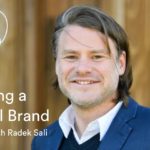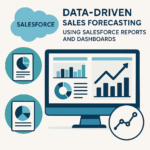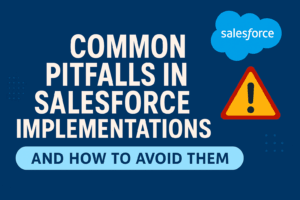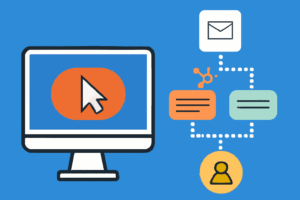BLOG
Building a Global Brand with Radek Sali
When you think about multivitamins, who do you think of? Well, it depends on who you are, your favourite TV shows and if you visit Priceline.
I sat down with Radek Sali, former CEO of multivitamin company Swisse, to discuss how he took the premium brand to a global scale with brand ambassadors.
In This Episode:
-
How mass media made Swisse what it is today
-
Why social media influencers are the response to savvy consumers
-
Breaking into China through the Daigou phenomenon
-
The importance of a Culture Plan
Listen to the full episode in Spotify or iTunes. Or if you prefer to read along, stay right here.
Michael Bird:
Hello and welcome to the Social Garden podcast. You’re with Mike and my awesome guest Mr Radek Sali, who you might have heard of before through his experience in Swisse, the multivitamins company. Thanks so much for taking the time to catch up with me. You’re a super busy dude and I really appreciate it.
Radek Sali:
Pleasure. Thanks for having us.
Michael Bird:
Awesome man, awesome. So I thought maybe just it’s a bit of a starting point, what would be helpful just to get a bit of understanding about your background prior to Swisse and how did that all unfold.
Radek Sali:
Sure so for me, my father is a professor of surgery and my mother’s a medical scientist. My father was one of the first to talk about diet and its link to chronic disease. He did a lot of study back in the seventies and it took 20 years for that study to be recognised and be published because people laughed at him when he talked about diet causing disease.
That’s changed a lot now. So I grew up with that context around nutrition and wellness and, and what you can do to deal with chronic disease proactively. So we had this great network of friends that were in the natural health space and I reached out to a number of them to talk about my ideas around changing industries and so forth and Swisse became a really obvious opportunity for me to move in with my background.
And then also some of the skills that I’ve learned about through big business and what was Village Roadshow which was, you know, a billion dollar turnover business, global, publicly listed and in high growth mode.
Michael Bird:
How big was Swisse at the time?
Radek Sali
Swisse at the time was turning over $13 million in revenue.
Michael Bird:
Yeah, right. And what was different in terms of how do you find that whole experience from switching across?
Radek Sali:
So back then nutrition and the aspirational lifestyle that sort of went with that didn’t go hand in hand. Vitamins was sort of a zone for the hairy hippies. And things have changed a lot and we were fortunate enough to be in a situation where we rode that wave of change and started to drive that forward.
And funnily enough, the psyche of the general population started to change around that same time. You can’t in this day and age, really boast about the type of car you drive or how much money you earn or that sort of thing. But you can boast about the latest diet or workout that you’re doing or the marathon you’re training for, so it’s one of the last few things that it’s acceptable for you to boast about is your wellness program. And so we rode this change in attitude towards people taking control of their health and wanting to do things that made a difference to how they lived.
Michael Bird:
It’s interesting you say that the retail piece, was that a pivotal part of the whole thing, do you think? In terms of reframing the way that people viewed the product from a retail perspective.
Radek Sali:
Yeah, big time because whether this was genius or not, the gentleman who is running Swisse is a fantastic character. Taught me a load, but one of the things he was really focused on was to make sure that I did a really authentic induction and learned every facet of the business without a focus on numbers.
So I was appointed as operations manager back then and I wasn’t allowed to look at a P&L for the first six months, so all we could do was actually go and visit retailers. And so what do you want and what works for you, what doesn’t? And create a whole lot of understanding through investigation and an observation and worthy inquiry and then creating a strategy off the back of that, which ultimately created the genesis of how we position Swisse as an aspirational brand. And I might not have seen that if I’d jumped straight into the numbers.
Michael Bird:
When you went into the retail locations, what type of things were you asking sales people and what were you looking for?
Radek Sali:
Well, I’ll never forget the biggest selling product at the time was Centrum, and every retailer, I asked them “Why do you give so much space to this brand, do they give you best margin?”
And they go, “No, it’s actually the lowest margin in the category.” They go, “No, well, it sells itself.” What do you mean sells itself? “Well, they’re on TV 52 weeks of the year and they got Rob de Castella as their ambassador and everyone knows who they are. They know and they trust the brand.”
We know it’s not the best product in the category, but it’s a good product. It delivers on consumers’ expectations, not over-delivers, just delivers. And also they also gave us great point of sale material with Rob de Castella holding the product. So for me I went “Hang on, this is pretty straightforward and we can beat this. We had a product that had higher retention than any other brand in the category, so it worked better than any other brand in the category. It had a whole lot of science that supported the product’s use so people significantly felt better when taking our products.
So when you’ve got those basics, you can market. So when I was looking at how our competitor was marketing – we’ve got to do this better. So we went and got the Australian cricket captain, Ricky Ponting, who we knew was taking the product, but we knew we couldn’t be on 52 weeks of the year. So we had to think about it a little bit differently because we couldn’t afford 52 weeks a year advertising. So we got Ricky Ponting and we just advertised with Ricky Ponting in the cricket. Nowhere else. That’s the only place where you would see adverts for Ricky Ponting.
Michael Bird:
It’s in between when there were commercial breaks.
Radek Sali:
And the great thing about cricket is there’s only one ad after the over and it comes straight back on. There are so many ads that you get as a result of that five-day play. And it was pretty cost effective because men weren’t that popular a group of people to market fast moving consumer goods to. And because we had Ricky Ponting, we got massive cut through and retention of his message.
Michael Bird:
Did you think it was going to happen or is that a byproduct? What made you focus on Ricky Ponting initially?
Radek Sali:
We knew he took the product and we also knew that he was a personality that had a national profile, and probably the biggest profile and the country. Australians love sport and cricket’s the one sport that’s played across every state in Australia. So we saw that as the biggest opportunity to market our product and to create an aspirational product.
Michael Bird:
What did you do about targeting the female segment?
Radek Sali:
I went into Priceline and I told them about this wonderful campaign that we’ve got on and Priceline’s audience is 95 percent female. That’s where there was opportunity to actually improve the strategy. So we did the Ricky campaign just over summer. Summer of cricket here – three months over summer, and then yes, I had to come up with another angle and when I pitched to Priceline about we’ve got this great ambassador, Ricky Ponting, the buyer said to me, “Who?”
And so that was, hang on, I thought everyone knew cricket and so no, fundamentally a lot of females in Australia couldn’t give a damn about cricket and all the personalities involved. But that’s why we only advertised with Ricky in the cricket. We only wanted to get people that were interested in Ricky and the cricket advertising our message.
So we had to pivot and I asked my mother what’s her favourite TV show. And it was Dancing with the Stars, and the host of that show was Sonia Kruger. And so we got Sonia Kruger on board and I pitched that to Priceline. I came in a month later and repitch with a new ambassador, I rang Sonia Kruger directly. And I said, “ Would you do an advert with us?” And she said, “Funny you say that, I love your product, I take it and would love to get involved,” So it’s great when you’ve got a good base of customers to kick off.
And then we did Dancing with the Stars. So we’re the first lifestyle program, like Dancing with the Stars or The Block on TV where we had the star of the show actually starring in an advert. That’s the first time it’s ever happened with Sonia Kruger being in the advert while the show was on.
Michael Bird:
I remember just after I met you, the first time I remember us having a conversation about contextualising the product using celebrity and the context of the TV show and the ads. I remember seeing it on The Block and then seeing it every time that Swisse was advertised, how that formula was used. So was that a critical part of the strategy?
Radek Sali:
So we’d just build on that. We’d go from Dancing with the Stars to the tennis and having a star of the tennis circuit, through to the Olympics and having the Olympic athletes. And those Olympic athletes, I mean being advertised during the Olympics or the sports report of the news leading up to it, it will always be in context. And the same in magazines, online or on radio would make sure that it will always be themed.
And so if you’re listening to the messaging of that personality, that’ll link to the actual telecasts, so deeper connection with that broadcast, which now is the basics of advertising. Everyone’s looking for greater engagement and greater depth of connection, the way they are linked. Whatever method they’re using for advertising, whether it’s online, whether through TV or through a programme or through radio, you know, they’re looking for deeper connection and deeper relevance with the audience.
Michael Bird:
Yeah. Interesting. It makes me think, what is the version of this within the social mediascape now, and what does that look like? And I guess it’s more about utilising the audiences.
Radek Sali:
That’s right, if you think about that, you’ll only utilise experts in the area from a social media point of view to talk about the product and its relevance to their life. And that’s actually naturally sinking in.
So if you think of a Kim Kardashian who’s probably one of the first in the social media space to really own it and turn it into a billion dollar business like it is for her. She would wear a dress and that dress should be paid and probably get a royalty for the sales and it just carries on. But to the consumer watching, they wouldn’t read into that as anything else. They’d just see it as Kim’s dress that they want to go and try and buy as a result of her doing that. So that’s that in its raw infancy.
If you think about that same context rolled out from a social point of view, it’s doing that same thing in more and more authentic ways because the consumer is becoming more and more savvy and more and more attuned to the fact that they’re being sold to. And unless it’s authentic, which we’re lucky because we’re in the wellness space and anyone that wants to be a sports person or is a celebrity or has to look after themselves in some way or another, they’re going to be worried about their wellness plan.
So we could fit into a quite a few different scenarios and we faced that business challenge and how we create a market or a brand that has relevance in so many segments in different categories now, which makes it interesting, but it’s a great challenge and that’s what it’s about. Once you crack that code accord, cracking the the code of how you can authentically present your brand to the consumer.
And remember when we did this the first time with Swisse, it wasn’t natural. No Rob de Castella who is the ex-marathon runner on 52 weeks of the year. No one was thinking and it was flat in terms of total revenue growth in the category. By the time we left, it was growing at 30 percent year in, year out and had been flat for years before that. But that’s because we’d found what the category could be about. And every category has that opportunity. Every business has that opportunity, you’ve just got to find it. And that’s why purpose is so key.
Michael Bird:
Interesting. Why did you choose to go to China?
Radek Sali:
You never choose. We were very fortunate in the fact that we called ourselves Suisse originally. We had to change it for trademark purposes.
Michael Bird:
To add an E on the end.
Radek Sali:
It was S-U-I-S-S-E originally. So the Swiss way of spelling Swisse, but we had to change for trademark purposes. But having that brand meant we had to manufacture as a premium, because you couldn’t make a discount product called Swisse. When you think about Switzerland, you think of premium, don’t you?
Michael Bird:
Yeah, totally.
Radek Sali:
So we needed to live authentically by being a premium product an, an accessible premium is what we were. We were always 20 percent more expensive than the average cost of a product in the category, but we had to be probably 20 percent better.
So we had the highest retention out of any brand in the category because people will try a brand. They go, oh, I’m noticing the differences because we’d choose premium ingredients, better manufacturing processes, all of these things. It would deliver a better health outcome as a result of the science to it. So we would have a loyal customer base that would notice and talk about our product. So they were really passionate about that and that authentically would play out with every ambassador we worked with. They would happily talk about what they experienced as a result of taking our brand.
Michael Bird:
It changes from being a script to just being storytelling to a degree. We’re explaining the story, I’m sure you can put some frameworks around what that looks like. Certainly them speaking from personal experience is a hell of a lot better way.
Radek Sali:
That’s right. And then also being called Swisse forced us to think global. So Swisse in two ways really helped us think big. Five years before selling our business, we went to China to try and partner with a Chinese company that would eventually buy us five years later.
Michael Bird:
Was it in your mind when you went over there?
Radek Sali:
No, it was to partner with them knowing we’re going in to a territory that had a completely different culture, rule of law, set of day to day circumstance, that we just weren’t attuned to.
Whereas at the same time we went into the US and went, “Oh wow, this is easy. We’ve got the same structure, rule of law, cultures great, we’ve got a lot of synergies.” Could speak the same language. It’s easy. Let’s go and do this and we’d talk to retailers and we’re just, we’re testing with retailers and they said “We want a range from you. Give us the product in three months. And all of a sudden we had 50,000 retailers wanting to put our product on their shelves in the US and we were like, “Oh, this is easy, we’re going to supply the US,” and this is when the business really started to grow thunderously.
Michael Bird:
How long did that period take between when you went in?
Radek Sali:
About five years.
Michael Bird:
About five years to really fire.
Radek Sali:
And it didn’t fire in the US. It was an absolute disaster. We got a whole lot of things wrong. The consumer part was firing, but the on-shelf presence was terrible and we just didn’t get the support from the retailers and we needed a much bigger team to make sure that we got product on shelf.
So once we had all these great advertising activity, it fell on deaf ears because they couldn’t find the product when they went to shop for it. Whilst we didn’t get the result we wanted out of the US, we got a great result out of Australia and we created a new market here in Australia which we ended up calling Project Gold.
So what we saw there was these clusters stores in areas where there were large Chinese populations that were consistently delivering huge sales results. Like 10 times more than any other. And my national field sales manager, he was telling me about this phenomenon that was going on. He goes, “You’ve got to come out and see this firsthand.” I went out and saw it. Students were going home from Rundle Mall in Adelaide where the University of Adelaide is and they would be buying product from Terry White Chemists and they’d be taking it back because the gift of health is the greatest compliment you can give to family and they’re buying this high quality Australian product.
I’d be looking at it going, no one’s talking to these people, there is no Mandarin point of sale. There aren’t products that are talking about Chinese New Year or all those sorts of theming that could be going on to excite these customers. So we went and got a guy that was running a watch business called Tissot, which had done really well in Asia and he’d been in Dior before that.
And he came across and led Project Gold for us. That group would focus on these – what we found in the end, we’re about a hundred odd stores, 150 stores where we’re overselling a product where there were high levels of Chinese migrants that had moved to Australia or students that were studying in Australia. So there’s a million Chinese migrants that had moved to Australia. There’s over 300,000, now 400,000 Chinese students studying in Australia. They liked to make money by buying product and then on-selling it.
Michael Bird:
They’re buying the product locally and then selling it back in China?
Radek Sali:
Yeah, and this is what we discovered as we started to focus on this area. As I said, we sort of eventually said, “Well, hang on, what’s really going on here?” So there are many layers is to how they’re getting product back. A million Chinese tourists come out every year, so you got 2.5 million people that you can target your product at and learn from without having to go the risk of growing your brand in China.
Project Gold was selling product to local Chinese. Then the local Chinese would then on-sell product, and this is where the online component came, came to hand and run social media driven. Diagou is what they call them, locals here, that buy product for Chinese people that want western products in China. They get shoppers to go out and shop for them. If you think back maybe 10 years ago when we didn’t have a lot of brands in Australia, you’d have to go pay someone to get it for you in America and maybe send it back. It’s exactly the same thing happening is from China getting westerners or Chinese westerners to purchase product for them and send it back to them.
Michael Bird:
I didn’t even know that was a market.
Radek Sali:
Massive. The biggest markets in the world are Europe first, then Japan, Korea and US and then Australia. And because China is a society where it’s okay to sell to your friends and make margin, it’s very accepted like that. So they have this networking that goes on and it’s intricate through digital networking and because our product, when people tried it, they would notice the difference. We had such great buzz, so many positive reviews as a result of people trying our product.
But the tools were Ellen, Nicole Kidman, the Olympics, all these international profiles. And so all of a sudden it wasn’t so much that that appealed to the average Chinese person. It appealed to the Chinese celebrity or sports person and they went, “I want to try what the leading western celebrity or sports people are trying,” and they would try it and then they’ll go, “Oh wow, this is amazing!” and tell their network of followers and then their followers would want to buy the product.
So it all fed itself. This thing of what we’d set up authentically, as a brand it was a premium that delivered better outcomes, that ended up being a lot cheaper than the products they’re buying in China. So we’re really competitive from a price point point of view.
Michael Bird:
Despite the fact that price point was more cost effective, did you have any problem translating the high end brand message?
Radek Sali:
That happened naturally because of the personalities we had involved. Aspiration was automatically created.
Michael Bird:
So it’s like a network marketing thing almost.
Radek Sali:
It was, and they would add margin on margin on it. So our product will be sold for three times the price that it was being sold in Australia because it could, and it was competing with other products were at that price point in China. It was a better product because it was a real premium.
Michael Bird:
Interesting. So what would be some of your advice and lessons that you’ve learned from growing Swisse from a-small-to-medium size business into an enormous business in today’s age with the rise of channels we’ve seen?
Radek Sali:
Yeah. So I always ask people if you’ve got a business plan and they go, “Oh yeah, I’ve got a business plan.” And then I ask them if they’ve got a culture plan, and generally about 20 percent have got a culture plan. So I say you’ve got to get a culture plan in place and see that as important as your business plan and then, you know, “Do you have a communications plan?” Which we were talking about a little bit earlier.
And so those three methods really help their business grow. And helped us deal with the growing pains, and growing pains comes in many different shapes and sizes and everything you can do to manage communication around those growing pains will make it a lot easier.
Michael Bird:
Yeah. Including the marketing piece and the internal comms.
Radek Sali:
Yeah, so interpretation of how the marketing works and system and process is so, so important and you know, that comes back to your business plan, but if you haven’t got system and process it’s all fine in your head, but it needs to be repeatable and everyone needs to understand what are the elements that are really important for success.
And you know, for instance, we had all these ambassadors, really important element for success with an ambassador for us is that integration into a program and that deeper connection. So a lot of people wouldn’t say that and your traditional marketer would go, “No let’s just take that advert and run it everywhere, for TARPs”… the target audience and I will get that same target audience.
But you’ve got nowhere near this same engagement. Logically it just doesn’t make sense that way. So you need to think about where you put the context of your advertising and where it lands.
And that was really important as part of our system and process. So then if I wasn’t doing marketing for a little while and there was a new marketer that came in, they just wouldn’t go back to Marketing 101 and traditionally marketing it as it’s always been, they’ll go “Okay, we’ll take elements of successful and traditional marketing, but we’re going to step it up and make it specific to our brand.”
And that would also then become specific to our purpose, and our biggest success point and the reason why we’re so successful is our culture. And our culture was a direct reflection of what our brand was. It was a great place to be. People loved to come in to work. That would be the thing that kept me up at night – was how engaged people were.
And if you think about it, we’ve all had a bad girlfriend, boyfriend or relationship in the past and it’s been negative for both of you and realised that afterwards. And for me, a lot of people are going to that bad relationship every day in the workplace or go bad culture, and it’s dysfunctional and they’re not giving their best as a result of that.
So you’ve got to make sure that relationship is the great relationship in your life because you spend more time in that relationship, than any personal relationship. And if you’re in that great space, you’re all contributing, you’re all pushing each other, it’s not easy, you’re challenging each other to be better and you’re rising to that occasion to be better. And I think that that’s a really essential part of any growth.
Michael Bird:
Yes. Thanks so much, I appreciate it. I know I’ve said you’ve got a million things to do, so taking the time, I just appreciate it so much.
Radek Sali:
Our pleasure. If we can make people healthier and happier in workplaces, we’re going to have a much better society. So hopefully this message is shared and people are inspired by it.
Michael Bird:
Well, looking around your office there’s a lot of smiles, so I think you’ve done a good job here at least. Thanks very much. Cheers.











